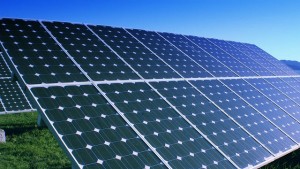 WASHINGTON, United States, Friday May 6, 2016 – The Inter-American Development Bank (IDB), the Caribbean Development Bank (CDB), the Caribbean Community (CARICOM) and the US Department of Energy (USDoE) have entered a partnership that will help provide cleaner, cheaper, and more secure sources of energy for the region.
WASHINGTON, United States, Friday May 6, 2016 – The Inter-American Development Bank (IDB), the Caribbean Development Bank (CDB), the Caribbean Community (CARICOM) and the US Department of Energy (USDoE) have entered a partnership that will help provide cleaner, cheaper, and more secure sources of energy for the region.
This week they signed a memorandum of understanding (MOU) that creates a framework for cooperation to promote programmes and activities that foster the transformation of the energy sector in the Caribbean.
“The MOU seeks to increase energy security, reduce energy vulnerability, and promote renewable energy, energy efficiency, and low-carbon technologies in the region,” the IDB said. “The USDoE, IDB, CDB, and CARICOM will collaborate to support strategic projects, activities, and programs developed in cooperation with regional governments in the Caribbean. These projects include non-reimbursable technical assistance and programmes to promote knowledge exchanges, capacity building activities, and to help mobilize technical expertise.” In addition, the MOU seeks to promote collaboration for a potential Energy Co-financing Facility for Caribbean Sustainability to be developed by the IDB, particularly focused on efforts to attract international investors.
The four institutions are developing an action plan to facilitate the implementation of the MOU, which will include additional details regarding expected timelines for implementation, definition of success, planned collaborative activities, and potential contributions. IDB President Luis Moreno said the four would work together on the identification of financing and investment opportunities for pilot and commercial scale projects in sustainable energy and to support the Caribbean regional energy strategy. “Our work to catalyze resources for the region is starting to bear fruit,” said the CDB’s President Warren Smith.
“We must now focus our attention on implementation. We must also intensify efforts to address capacity constraints that could slow us down. Grant resources could be available for capacity building and addressing institutional weaknesses. Legislative and regulatory framework weaknesses have to be addressed if we are to attract the type of private investment that is desirable.” Specific areas of cooperation within IDB-CDB-USDoE-CARICOM agreement include:
- Energy efficiency, including, but not limited to, energy efficiency policies and regulations such as energy efficient building codes; energy standards for appliances and equipment; and clean vehicle standards and regulations;
- Grid management, including, but not limited to, smart grid deployment;
- Renewable energy, including, but not limited to, solar, wind power and energy storage and their integration to the grid, in a cost‑effective manner;
- Fuel diversity, including, but not limited to, exploration of alternative sources of baseload fuels beyond petroleum;
- Energy education, including, but not limited to, clean energy workforce development; and,
- Clean energy financing, including, but not limited to, mechanisms to support the substitution of diesel by cleaner, cheaper, and more secure sources of energy (natural gas, geothermal, hydro, ocean and sustainable biomass) for baseload power generation.
CARICOM Secretary General LaRocque said the work that is being pursued by the CARICOM Secretariat, working jointly with the CDB, IDB and USDoE is consistent with the regional energy policy and the Caribbean Sustainable Energy Roadmap and Strategy (C-SERMS). “Through this MOU, the signatories have signaled a commitment to provide some of the technical assistance and funding that is needed for the region to judiciously pursue the goals and targets of the Caribbean Community. The MOU can also enhance project implementation and will ac
